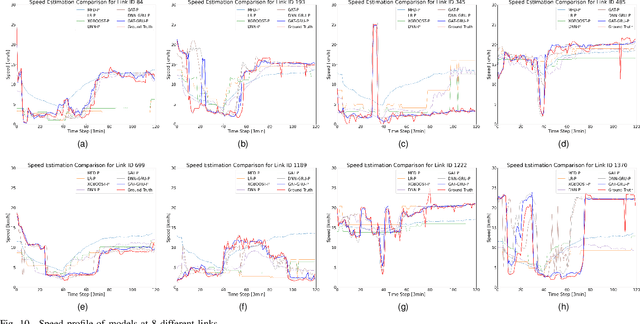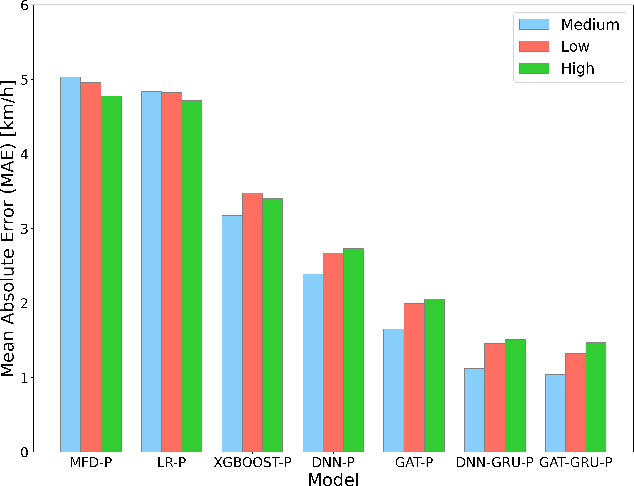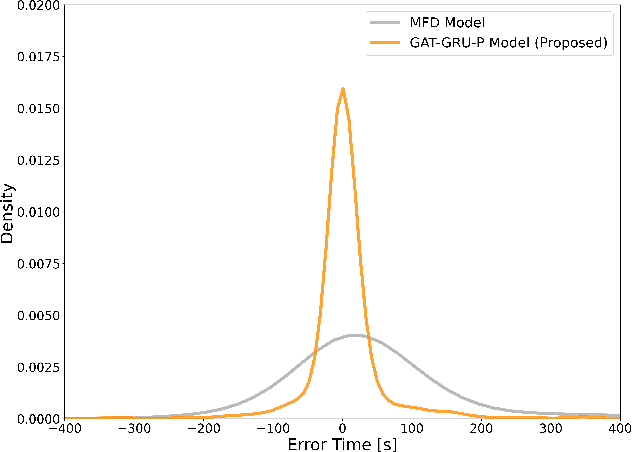Deep Learning Methods for Adjusting Global MFD Speed Estimations to Local Link Configurations
Paper and Code
May 23, 2024



In large-scale traffic optimization, models based on Macroscopic Fundamental Diagram (MFD) are recognized for their efficiency in broad analyses. However, they fail to reflect variations in the individual traffic status of each road link, leading to a gap in detailed traffic optimization and analysis. To address the limitation, this study introduces a Local Correction Factor (LCF) that a function integrates MFD-derived network mean speed with network configurations to accurately estimate the individual speed of the link. We use a novel deep learning framework combining Graph Attention Networks (GATs) with Gated Recurrent Units (GRUs) to capture both spatial configurations and temporal dynamics of the network. Coupled with a strategic network partitioning method, our model enhances the precision of link-level traffic speed estimations while preserving the computational benefits of aggregate models. In the experiment, we evaluate the proposed LCF through various urban traffic scenarios, including different demand levels, origin-destination distributions, and road configurations. The results show the robust adaptability and effectiveness of the proposed model. Furthermore, we validate the practicality of our model by calculating the travel time of each randomly generated path, with the average error relative to MFD-based results being reduced to approximately 76%.
 Add to Chrome
Add to Chrome Add to Firefox
Add to Firefox Add to Edge
Add to Edge